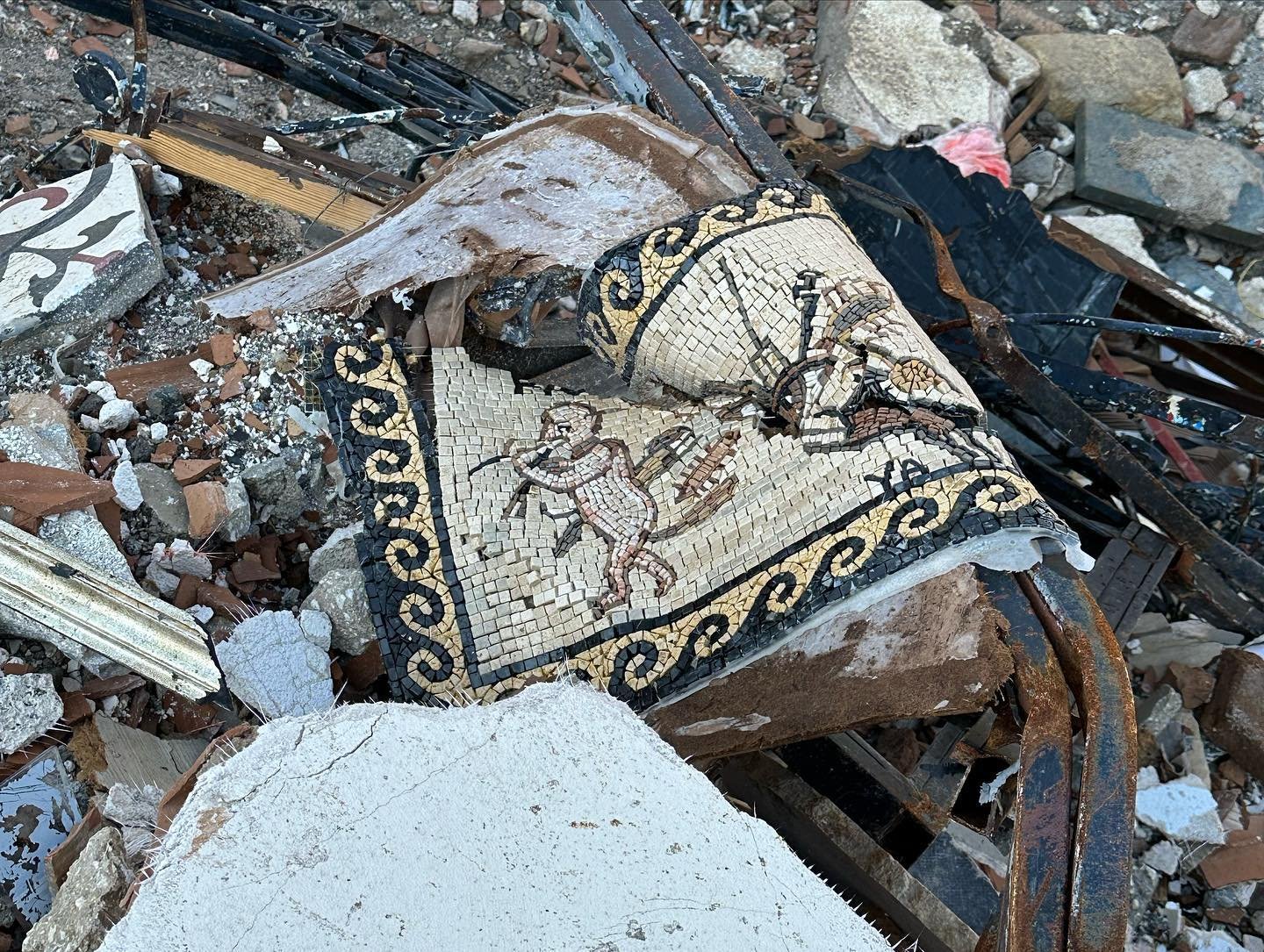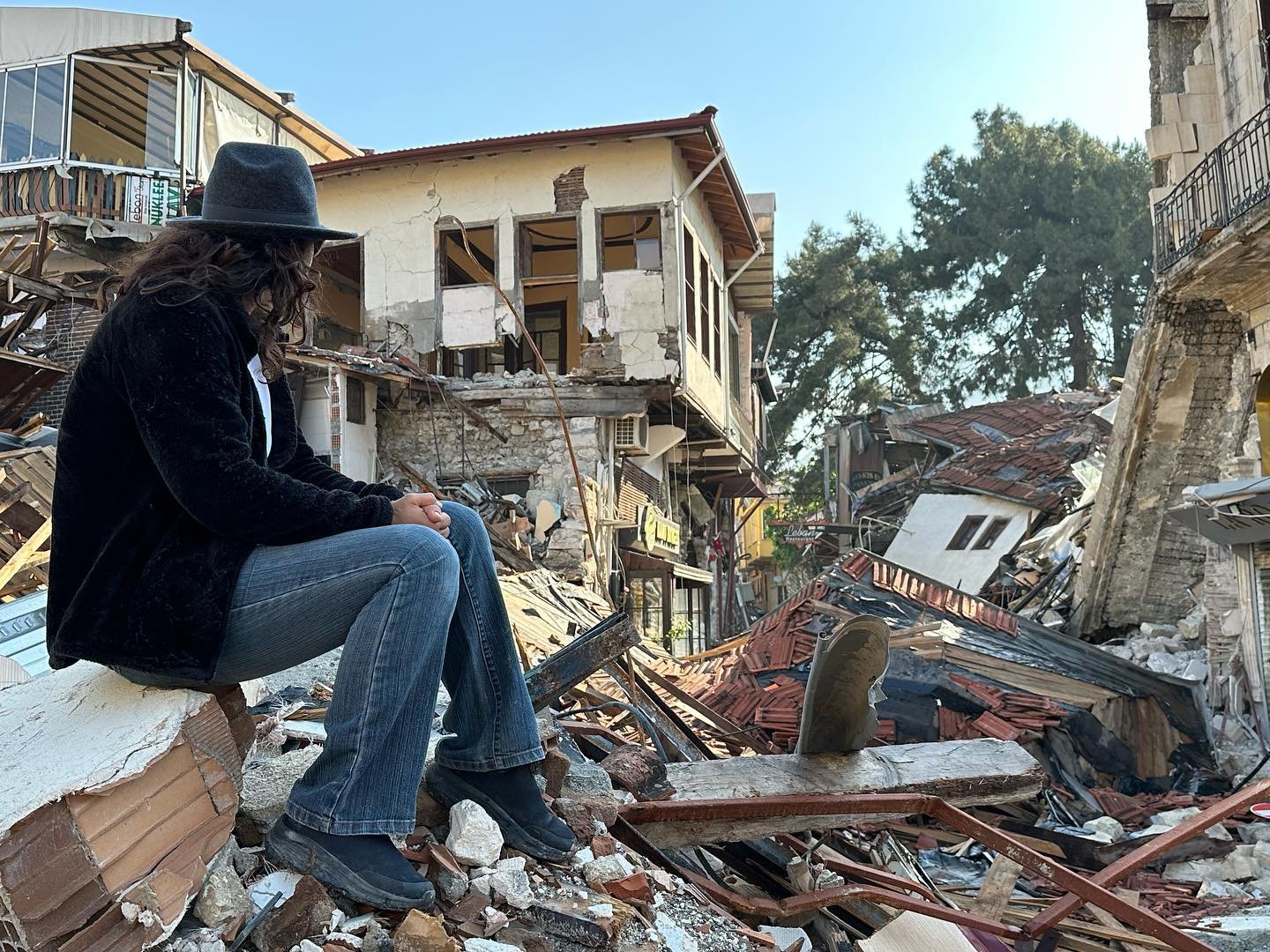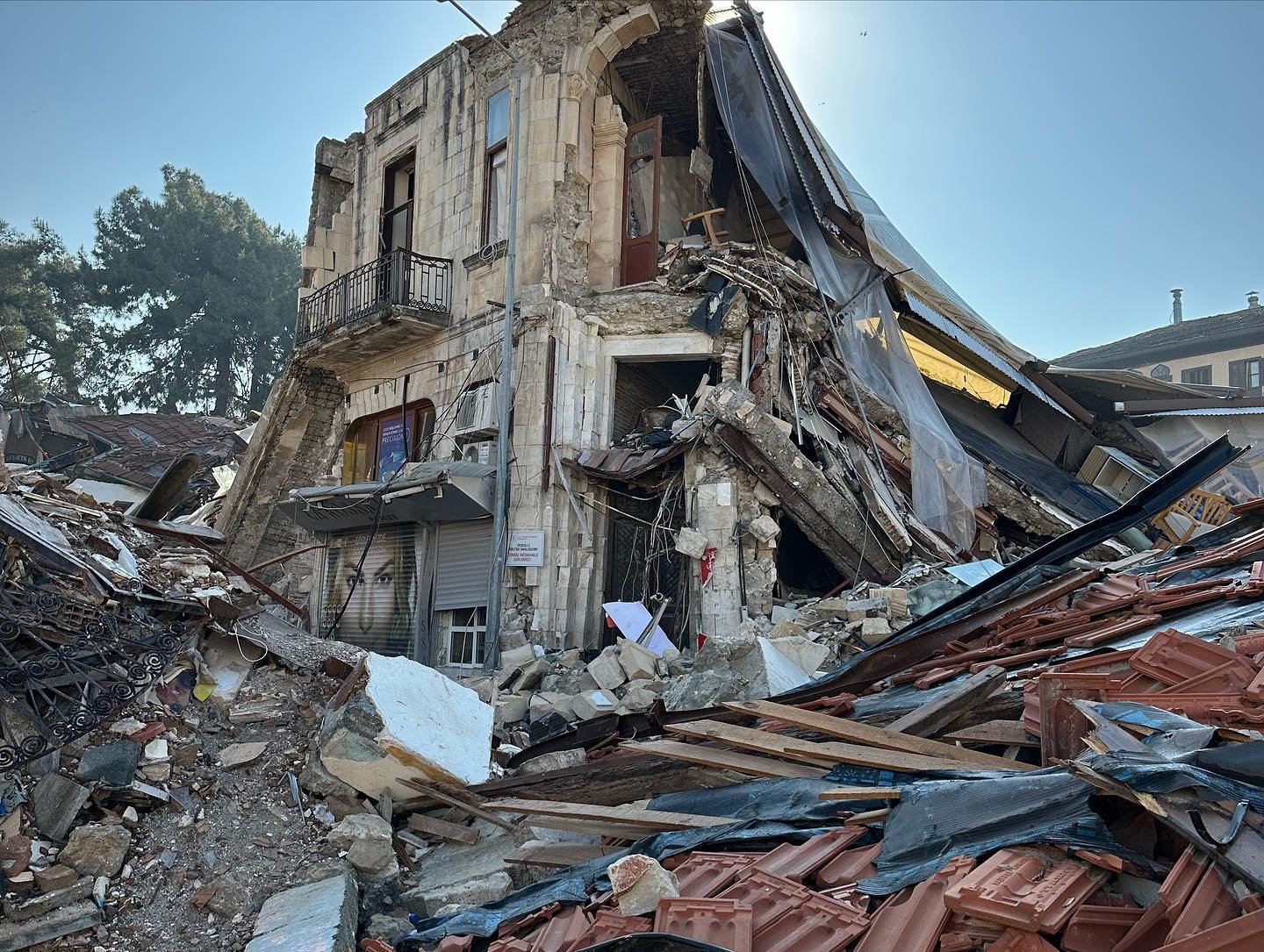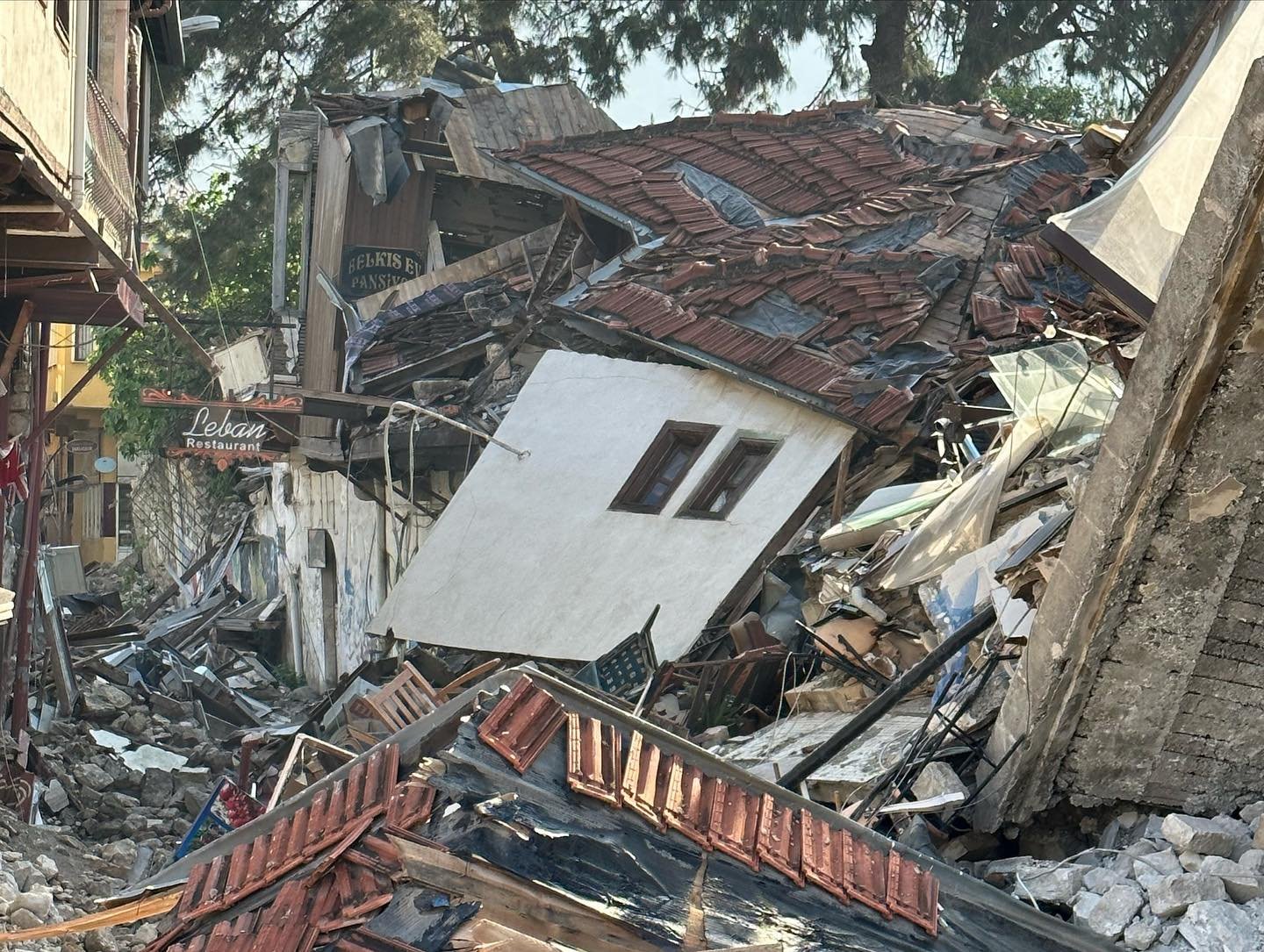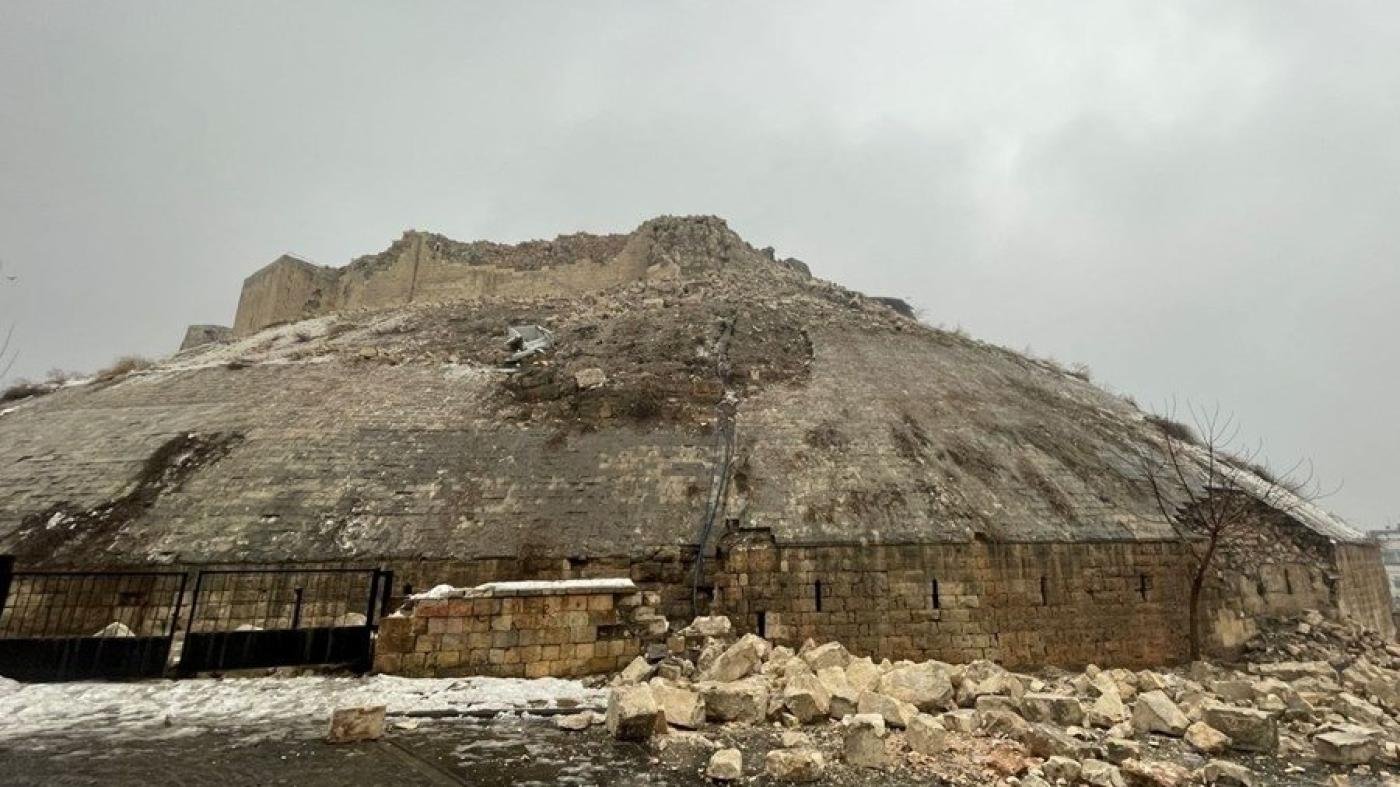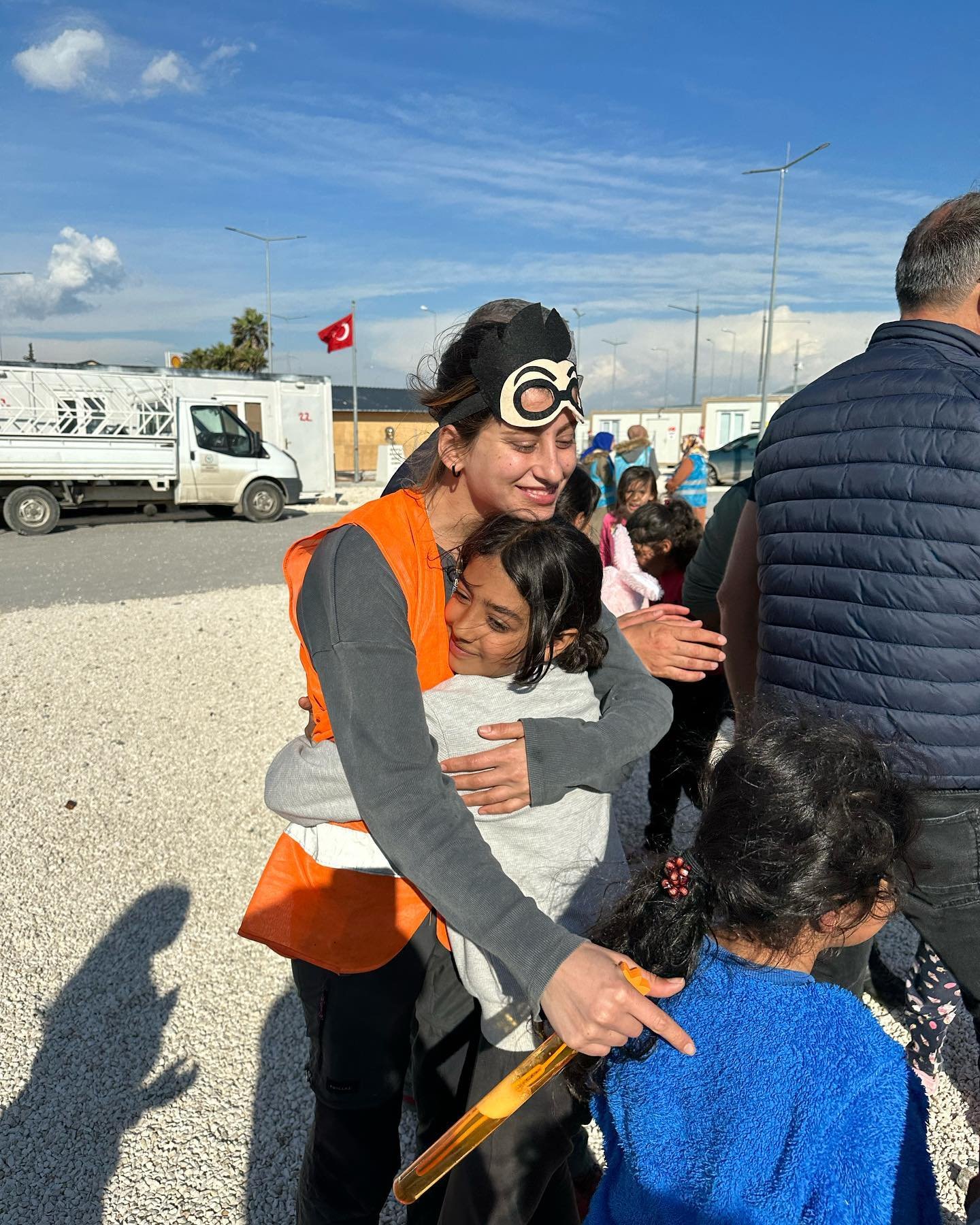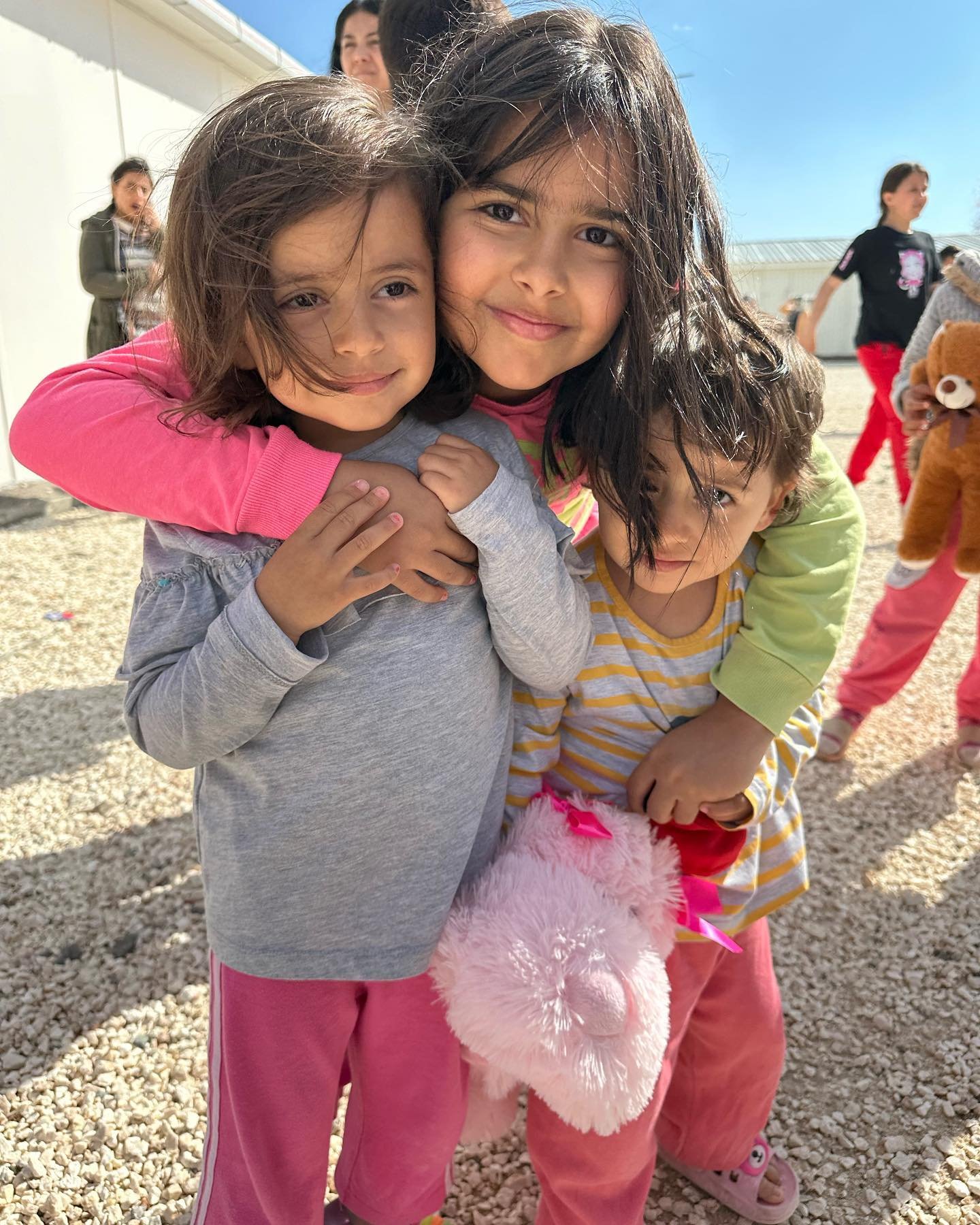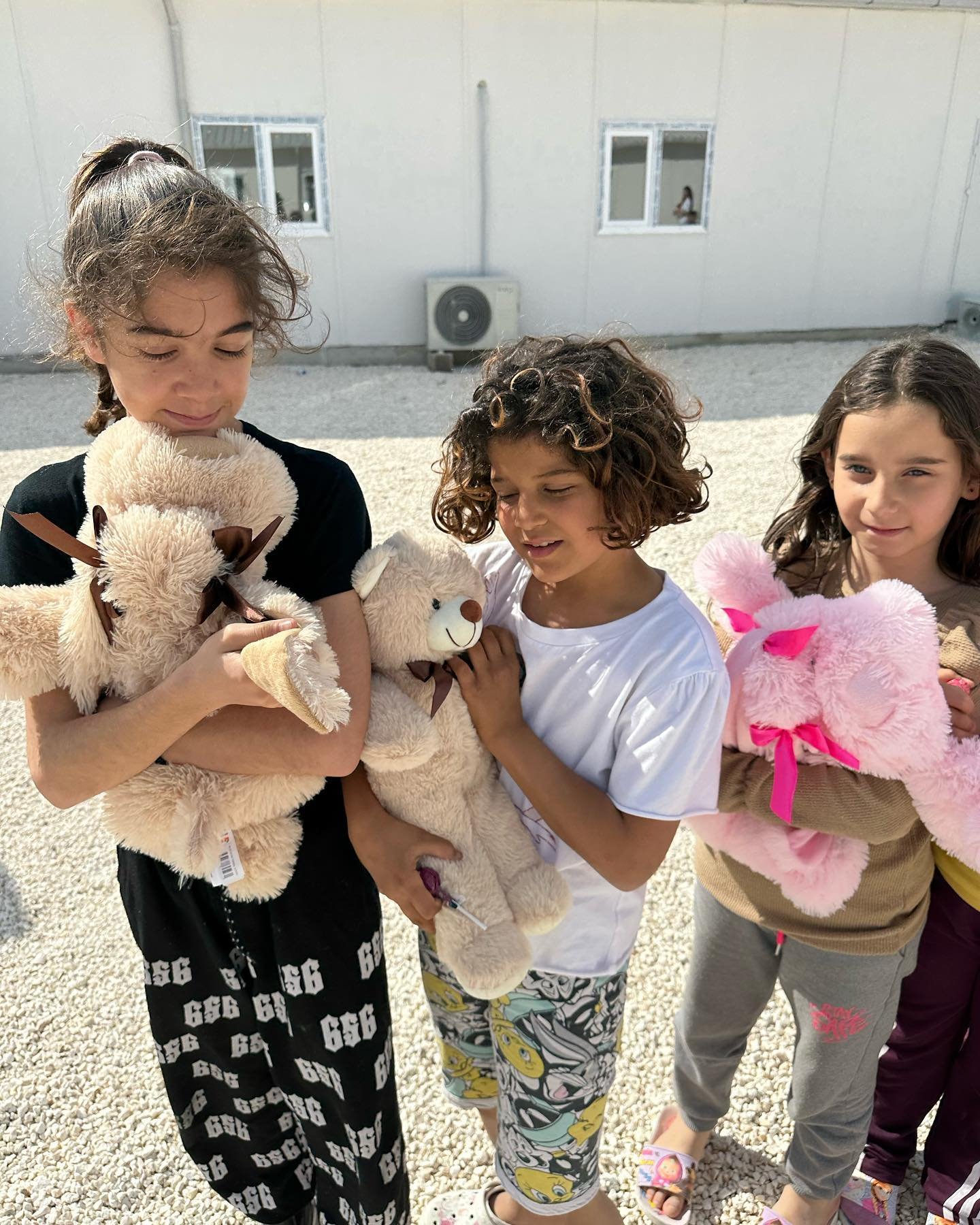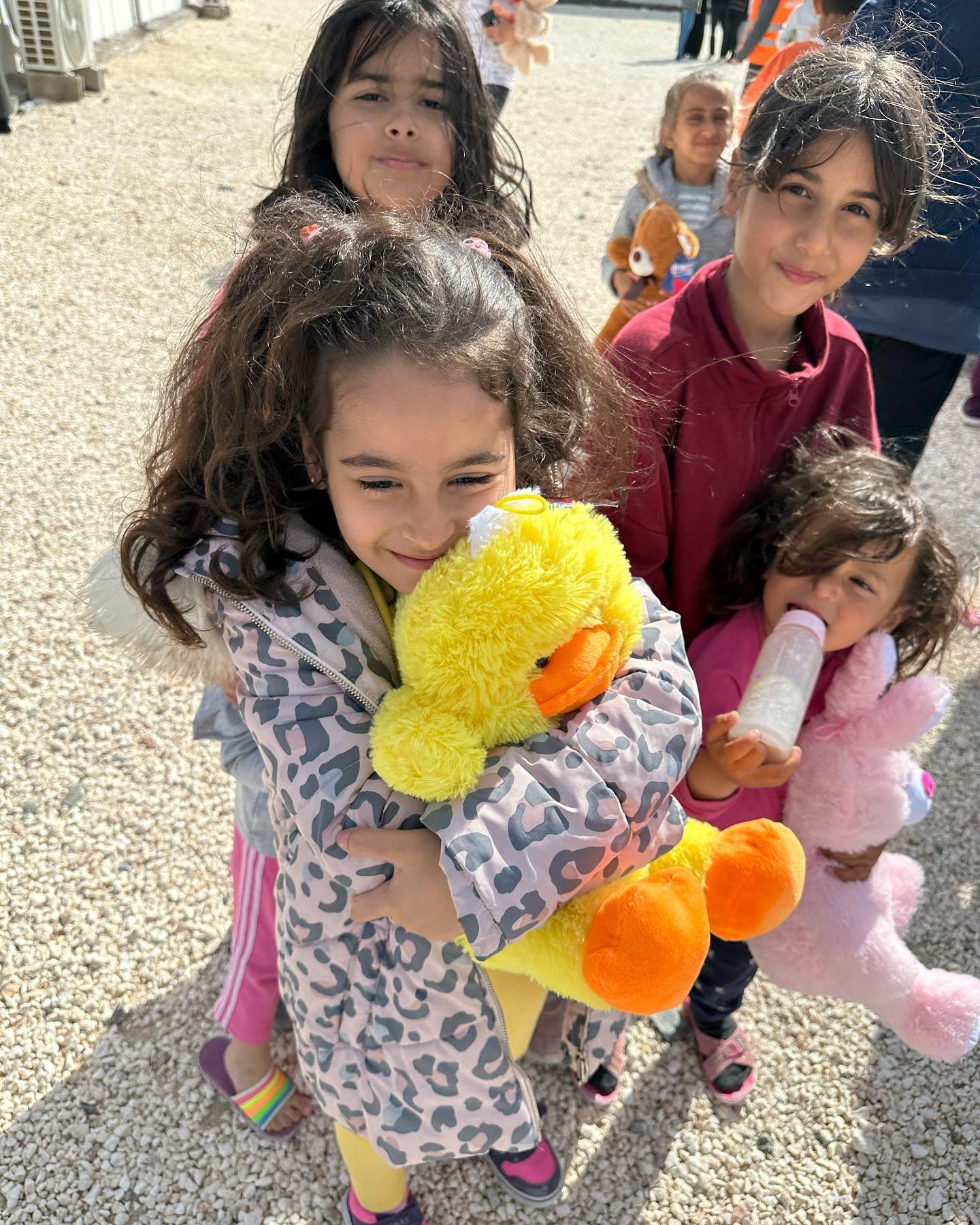Bringing Comfort to Children in Crisis: Teddy Bear Mission in Hatay, Turkey
Have you ever wondered what it would be like to witness a natural disaster first-hand? HMI's founder, Dr. Selin Nielsen, and a team of volunteers based abroad recently had the opportunity to travel to Hatay, Turkey, to witness the aftermath of the devastating February 6th, 2023 earthquake. Now known to be the deadliest natural disaster in its modern history, two months later, the scene was still one of chaos, with destroyed buildings and people struggling to find basic necessities like food and shelter.
The Region and Impact
Hatay is a region located in the southern part of Turkey, bordering Syria to the south and east, and the Mediterranean Sea to the west. It has a population of around 1.6 million people and its capital city is Antakya. Hatay has faced challenges in recent years, particularly due to the conflict in neighboring Syria. The influx of refugees has put a strain on the region's resources, including housing, healthcare, and education.
The earthquake occurred on February 6th, 2023, with a magnitude of 7.3 on the Richter scale. The epicenter was located near the border of Turkey and Syria, with the most significant damage occurring in the Turkish province of Hatay and the Syrian city of Aleppo, exacerbating the already difficult situation for many residents and refugees in this area. The earthquake resulted in over 50,000 deaths and caused extensive damage to buildings and infrastructure in the affected areas. The earthquake also triggered landslides, which further worsened the damage and made rescue efforts more difficult. But the impact of the earthquake was not limited to just the physical destruction of buildings and infrastructure.
Refugees in the area have been disproportionately affected, as they often live in more vulnerable conditions with fewer resources to fall back on. They are already dealing with the trauma of displacement, and the earthquake only exacerbated their situation. Turkey is home to one of the largest refugee populations globally, and many of them were residing in the affected areas. The earthquake destroyed or damaged several refugee camps, leaving thousands of refugees without shelter or basic necessities. Luckily, relief efforts were launched by the international community, including HMI, immediately following the disaster to provide aid to those affected.
Gaziantep Castle before the Earthquake.
Gaziantep Castle crumbled after the Earthquake.
Working in a Disaster Zone
It took just 103 seconds for the earthquake to cause cataclysmic destruction, leaving many people struggling to cope with the aftermath. When Dr. Nielsen and the team visited children and families in the area, they seemed to be taking life as it comes, happy to receive much needed supplies and have a bit of fun despite everything. However, they also shared their struggles with daily life since the earthquake. "They talked about how their lives are now and that they don't have much to do because there are no schools and supplies or anything," Dr. Nielsen said. The silent trauma was visible everywhere. "Most places the rubble had been cleaned and there was an eerie silence and void," she said. "Other places, you could see cats crawling through the rubble and it was overwhelming to see the collapsed buildings."
Thanks to the generosity of HMI's amazing supporters, the team of volunteers was able to bring much-needed supplies to the tent camps where they stayed alongside other NGOs like UNHCR and the Danish Refugee Council. The situation was dire, with access to food being limited and stores having been destroyed by the earthquake. But through the tireless efforts of HMI and other organizations, some relief was able to be provided, including sponsored breakfasts and food provided during the holy month of Ramadan. Even in the face of such devastation, the little things made a big difference. Dr. Nielsen and her team provided women with hygiene supplies, shampoo, soap, toothbrushes, toothpaste, and combs, items that may seem small but were impactful. "After all, everyone needs a bit of normalcy and maybe not essential, these items were much appreciated," she said.
In addition to the emotional toll, the earthquake had also caused logistical challenges. "We also couldn't even find any restaurants, markets, or bakeries. Everything was gone," Dr. Nielsen said. "We had to drive 18km just to get bread." The basic necessities of life, such as shelter and electricity, were even hard to come by. "The NGO people on the ground had injuries in their hands from building tents non-stop, you could see the blisters turned into calluses. The first night our tent leaked and I stepped into a puddle of water when I got up to go to the bathroom," Dr. Nielsen recalled. "The electricity was provided with portable generators and water was dripping down the light bulb. It didn't seem very safe but we just cleaned and dried everything, and some soldiers came and fixed the electric supplies."
Teddy Bears in a time of Crisis
Our team of volunteers also had a special mission during their trip: to deliver 100 teddy bears to refugee children in the tent camps. At first, the children were hesitant to accept the bears, understandably wary after experiencing such a traumatic event. But as they relaxed and began to participate, the joy on their faces was heartwarming. Parents even shared that they hadn't seen their children smile since the earthquake occurred. Despite their resilient attitudes, the children had clearly been affected by the earthquake. "We didn't ask about the night of the earthquake not to trigger them but they did mention losing family members," Dr. Nielsen said. "The parents seemed to be in more of a depressed mode."
The gift of a teddy bear might seem small in the grand scheme of things, but it can make a huge impact on the mental health and well-being of children who have experienced a traumatic event like a natural disaster. Children are particularly vulnerable during times of crisis, and the stress and anxiety they experience can have long-lasting effects on their development.
Studies have shown that children who experience trauma, like many refugees, are at a higher risk of developing mental health disorders like depression and anxiety later in life. That's where the power of a teddy bear comes in. A teddy bear provides a sense of comfort and security, something to hold onto during times of uncertainty. It can be a source of emotional support, helping to ease the anxiety and stress that children may be feeling. In addition, a teddy bear can provide a sense of normalcy in a situation that is anything but normal. It can serve as a reminder of happier times and help children to feel a sense of connection to the world outside of the disaster zone.
The impact of the teddy bears that were delivered to the children in Hatay, Turkey, was evident in the smiles on their faces and the joy they expressed upon receiving them. However, the team soon discovered that they didn't know what the cut-off age would be for receiving the toys, and some children didn't receive one of the bears brought to the camp. "They quietly accepted this fact and it broke our hearts," Dr. Nielsen said. "They did not ask again or beg, just quietly left. And I saw one crying a little later. I didn't know if it was because he didn't get the toy, but it broke my heart."
The destruction caused by the earthquake is massive, and there is still much to be done to provide assistance to those in need, especially refugees who are already facing immense challenges. We would like to extend our deepest gratitude to all the supporters of HMI who donated to our Teddy Bears for Turkey campaign. Your contributions have helped bring smiles to the faces of many children who have been affected by the earthquake and displacement. Without your generosity, we would not have been able to make such a significant impact in the lives of those who are suffering through this disaster. The journey continues, and with continued support, HMI can make an even greater impact in the lives of those affected by natural disasters and displacement for refugees around the world.
Thank you to the organizations that helped to make a positive impact alongside HMI: @twitvole @yardimkonvoyu @ravdanur_cuma @sercevdernegi

